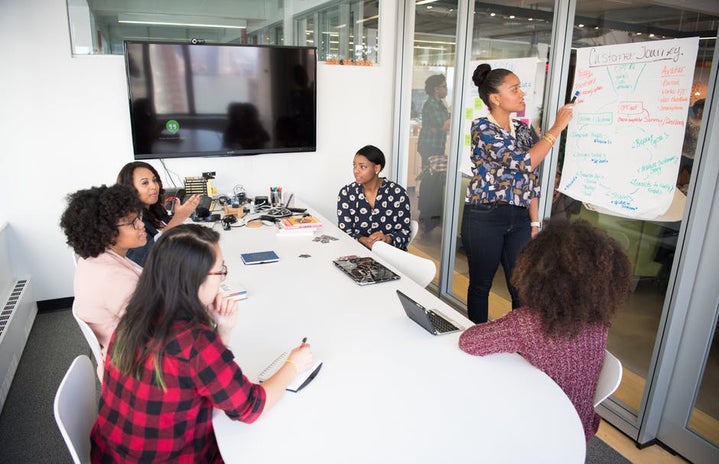People tend to think of themselves as one thing. I’m a woman or I’m a Delta Nu or I’m a soccer player. But the thing is… People don’t exist in a vacuum. You’re never just one thing. We are all always, to quote The Breakfast Club, “a brain, an athlete, a princess, a basket case, and a criminal”. All of these parts of you are unique and important to your identity, and it’s important that we recognize them.
But sometimes, we don’t recognize those other parts. In fact, most of the time, we ignore parts of our identity. Social Psychologist Claude M. Steele says, “… of all the things that make an identity prominent in one’s thinking and feelings, being threatened on the basis of [that identity] is perhaps the most important”. Essentially, we are most aware of our identities when we feel like that part of us is being attacked. The need to defend ourselves makes us hyper-aware of this sudden vulnerability.
What we should be aware of is how all of our identities function together to create our experiences. Maybe you’re an educated, queer, Hispanic woman. What does this mean for you? Perhaps, you’re a wealthy, disabled trans woman. You could possibly be a young, bilingual, Buddhist, Irish nonbinary person. Regardless of how you identify yourself, you should be aware of your privileges and how other people are disadvantaged.
What is privilege?
Privilege is a unique advantage afforded to a person or a select few people. If even one of your identities is in the majority group, then you have privilege. Privilege is never wondering when your next meal will be. Privilege is not worrying about a cop approaching you. Privilege is always knowing you can get to your second-floor apartment. Privilege is being able to walk down the street with your partner and not get harassed.
Sometimes privilege is a relatively small thing like your blonde hair that easily accepts fun colors; sometimes privilege is a major advantage like how being able to read allows you to understand instructions, interpret menus, share stories, and even communicate with others. If you don’t have to think about your actions or your appearance, then you have privilege. As a person of privilege, you should use your privilege to help those who are disadvantaged.
Advocating…
When advocating for those disadvantaged people, you should listen first. Listening allows you to understand their experiences. You shouldn’t talk down to them or patronize them. Don’t tell them what to do or try to invalidate their points. You want to make their voice heard, not your own. You aren’t speaking for them; you are amplifying their voices. Also understand, one person’s experience isn’t necessarily generalizable. Don’t assume you know everything that happens to a person because of their identity/identities because you have a token friend.
If you claim to be a feminist or any person who cares for other people at all, you cannot be exclusionary. If you say, “I love all women but trans women aren’t women”, then you can’t call yourself a feminist. If you say, “Women of color have it so easy because of Affirmative Action”, you’re ignoring years of systematic oppression and current barriers to their success, thus, being racist. Advocating for equality doesn’t stop when you reach equity and equality. You shouldn’t stop until everyone is treated fairly. Just because you don’t experience discrimination doesn’t mean that we live in an anti-discriminatory society.



